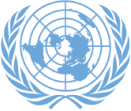Statement by H.E. Mr. Rudolph Michael Ten-Pow, Ambassador, Permanent Representative of the Cooperative Republic of Guyana on behalf CARICOM at the ECOSOC Operational Activities for Development Segment, Agenda Item 7
Thank you Mr. Vice President,
I have the honour to speak on behalf of the fourteen Member States of the Caribbean Community (CARICOM), who align ourselves with the statements just made by Egypt on behalf of the G77 and El Salvador on behalf of CELAC, as well as with the statement to be made tomorrow by Maldives on behalf of AOSIS Member States.
CARICOM would like to congratulate you, Mr. Vice-President, and the Bureau for the programme you have outlined for this operational activities segment. We also thank the Secretary-General for his reports on the implementation of the QCPR issued in July and December last year and for the recent preliminary report contained in document A/73/63 on the
Implementation of General Assembly resolution 71/243.
CARICOM takes note of the recommendations contained in these reports on repositioning the United Nations Development System to deliver on the 2030 Agenda, and in particular the proposals for aligning the functions and functioning of the UN development system and the Resident Coordinator System to meet the implementation demands of the 2030 Agenda. We are committed to the Secretary-General’s reform efforts for the United Nations Development Group (UNDG). There are however, a number of issues of specific concern to us as SIDS and, moreso, as middle income SIDS which we feel need to be addressed if we are to achieve our goal of leaving no one behind..
Mr. Vice President,
Under the current governance structure of the United Nations Development System, many CARICOM member States are being serviced through ‘multi-country office arrangements under which a single United Nations Development Assistance Framework (UNDAF) is prepared for countries that often have different development priorities. Throw in the budget constraints under which these multi-country offices operate and the reality is that many CARICOM countries are being under-served.
What is more, because of the costs and other challenges associated with a single office serving several countries, the multi-country office is often unable to promptly and adequately respond to requests for assistance. We therefore call for special attention to be paid to the challenges associated with the system of multi-country offices. Member States should be fully involved in the design of the new system and in the restructuring of the Resident Coordinator and UN Country Team systems in order to better meet the specific needs of CARICOM member States.
We propose that the adjustments to be considered for a multi-country office should include adequate time for consultation with multiple Governments in the preparation or revision of Development Assistance Frameworks. Further, we propose that each Member State should have its own Development Assistance Framework so that all of our countries could meet the requirements of an integrated programme for the achievement of the 2030 Agenda.
Implicit in these expanded governance arrangements for a multi-country office is a Resident Coordinator whose office has the technical capacity and resources to manage the full range of programmes to be implemented in each country. As middle-income countries, we require predictable core resources to meet our development needs and to facilitate the response of United Nations funds, agencies and programmes in addressing those needs.
We are also concerned about the operationalization of the concept of pooled funding, particularly about the way in which pooled funds will be distributed across multi-country offices, which often have different priorities, and the changing mix of priorities across the spectrum of development and humanitarian needs.
Mr. Vice President,
CARICOM would like to see the UN development system place emphasis on development, and in particular on the eradication of poverty. As a sub-region prone to natural disasters, we recognize that the need for humanitarian assistance will arise from time to time. In order to avoid the diversion of development funds, we believe that there should be specific budget allocations for humanitarian needs rather than a single budget or a pooled fund to meet both humanitarian emergencies and development programmes.
Mr. Vice President,
As we consider the revamping of development assistance structures in our region, CARICOM would like to recognize our regional commission as an important branch of the governance architecture of the United Nations development system and place on record our appreciation to ECLAC for the important policy initiatives it has taken, including the proposal of innovative means of funding the goals set out in the 2030 Agenda. We believe that the Regional Commission should be more fully integrated into the System and tasked with helping to identify the development priorities of Member States and providing expert advice.
We also believe that South-South cooperation is integral to the sub-region’s achievement of the goals and targets set out in the 2030 Agenda. We note with satisfaction its integration into the operational activities of the UN development system by UNDP and other agencies of the UN system. We would however like to reiterate our long-held position that South-South Cooperation should not be a replacement for North-South Cooperation and we look forward to continued support from our partners in this regard.
In concluding, Mr. Vice President, CARICOM wishes to stress that monitoring the implementation of all of the processes involved in the repositioning of the RC System and the UN Country Teams is important. We would like a comprehensive elaboration of the plans for on-going monitoring and also for periodic evaluation of the process, in order to ensure that the sub-region remains on track for achieving the Sustainable Development Goals of the 2030 Agenda.
We also wish to reiterate the need for national capacity and institutional strengthening, including for data collection and analysis, without which countries would be unable to take advantage of the policy support and guidance offered by the UN development system. We close by expressing appreciation to all of the UN System funds, agencies, programmes and entities operating in the sub-region, which are paving the way for our countries to begin implementation of the 2030 Agenda through its MAPS programme and advocacy support.
We welcome the articulation of UNDP’s role in the repositioned RC system and UN country teams and look forward to similar articulation of the roles of other funds, agencies and programmes under the new coordination arrangements.
I thank you.


